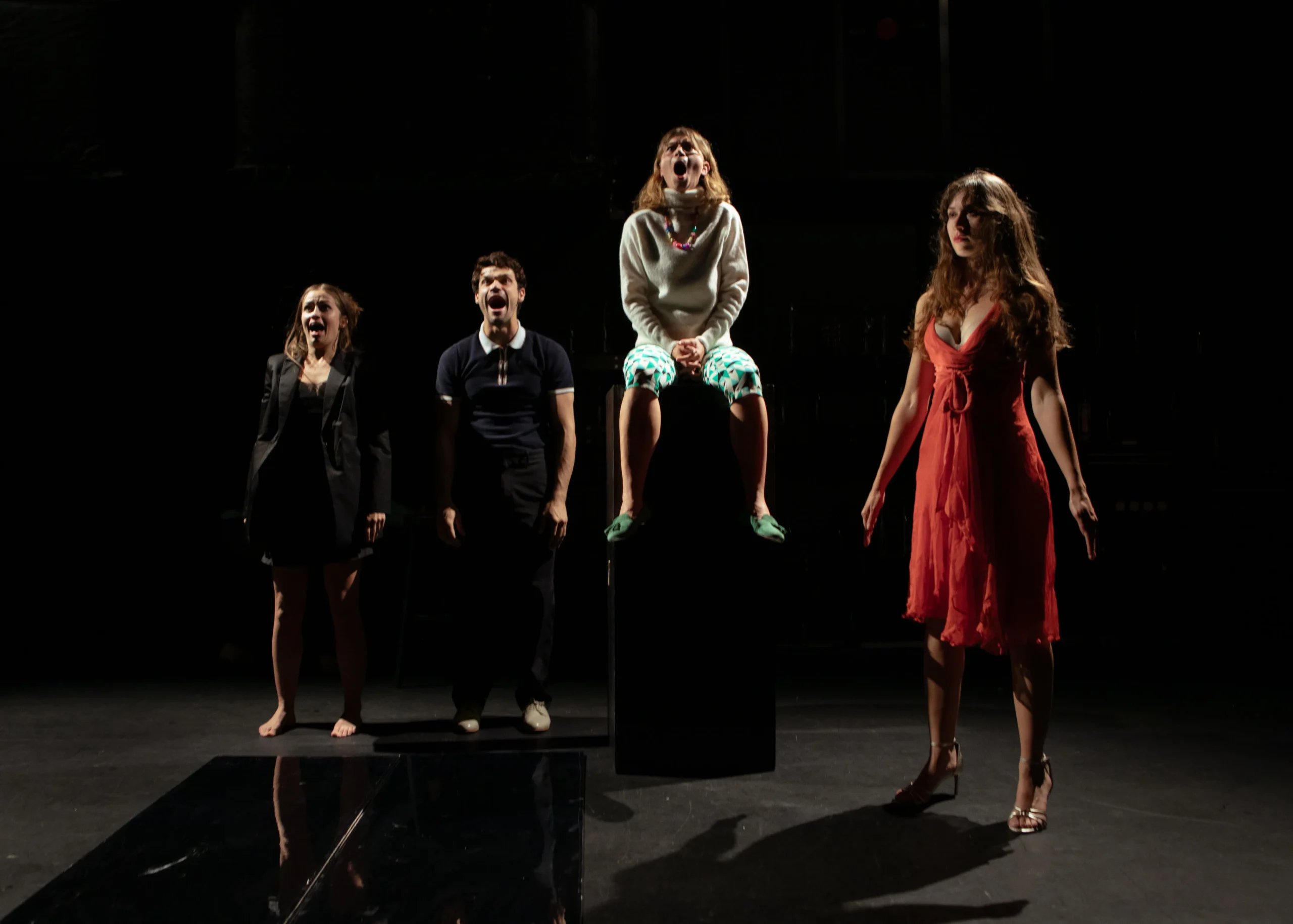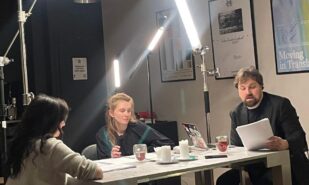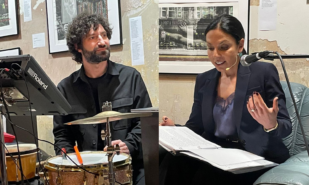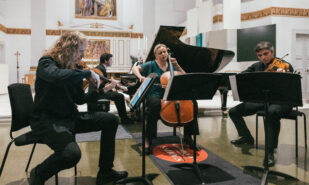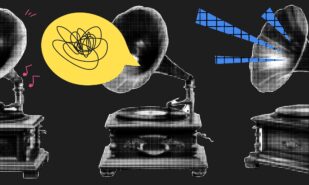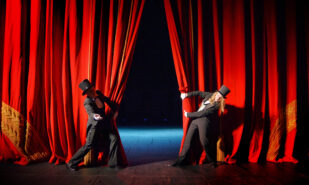Poor Children
The Art Theatre London team has staged the prose of Charles Bukowski. The performance, played at Riverside Studios, combines several texts by Charles Bukowski, connected by time and the shared sense of hopelessness that critics have termed “dirty realism.” Why, one might ask, has this bleak classic of 20th-century American literature intrigued director Anna Wheeler today? It turns out, there are many reasons.

The obscene language is not removed from the performance, as it’s clear that these characters cannot speak in a high-flown manner. The careful, attentive staging — often giving the author’s text to the characters — does not destroy Bukowski’s prose but gently leads it to its main meanings.
Behind countless imaginary glasses of alcohol and countless imaginary cigarettes lies the main theme: a dull, hopeless, habitual feeling of love.
Almost all these characters wear adult trousers and dresses, but underneath this masquerade hide children who never grew up. It’s anyone’s guess what prevented them from growing up, but it is a fact. Bukowski, speaking of his novel “Ham on Rye,” which describes his childhood, smirked, saying he tried to make it as funny as possible to hide the horror he was experiencing at the time.
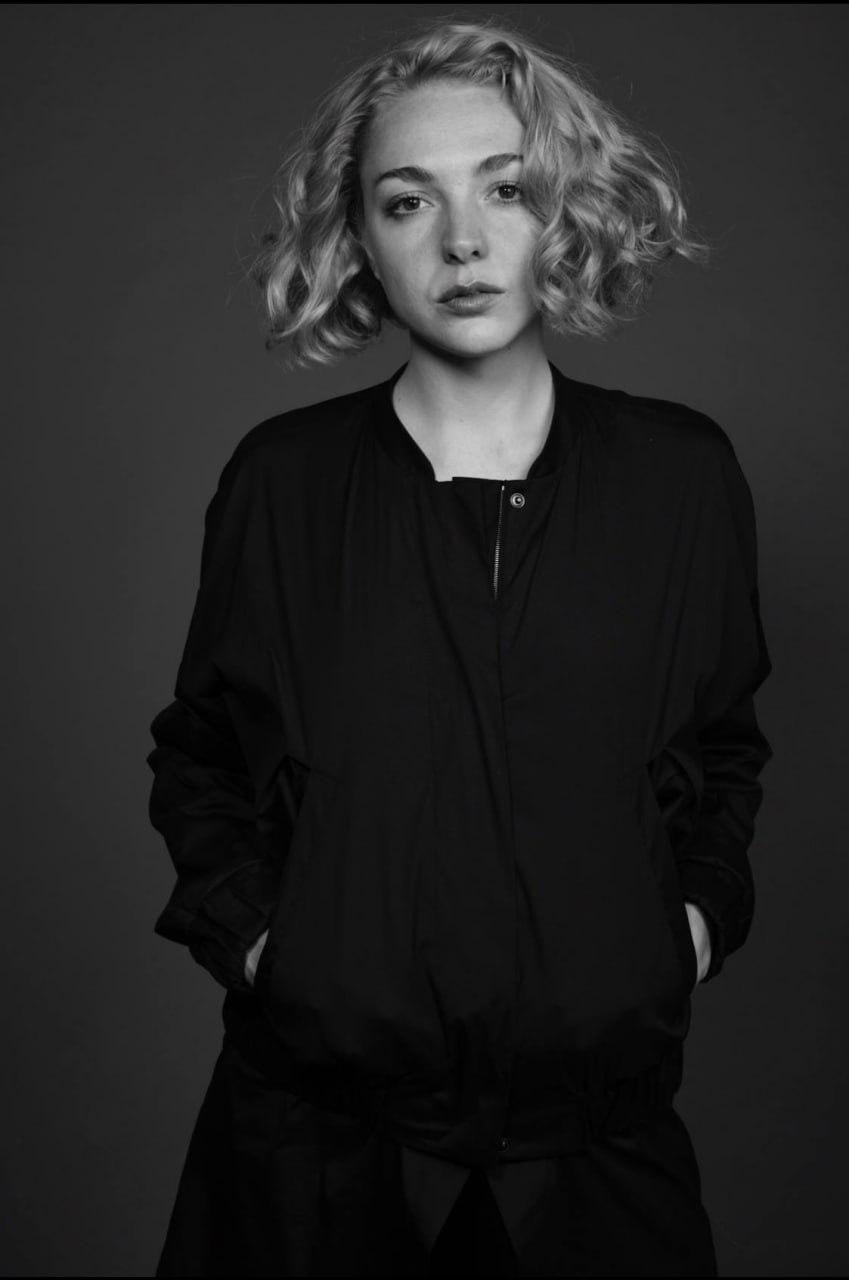
In the play “Life With Little L,” director Anya Viller uses the same technique: the stage is a semi-comedy, a pseudo-farce, a micro-grotesque. The jokes here are not for their own sake, but because they are the only way to endure the horror.
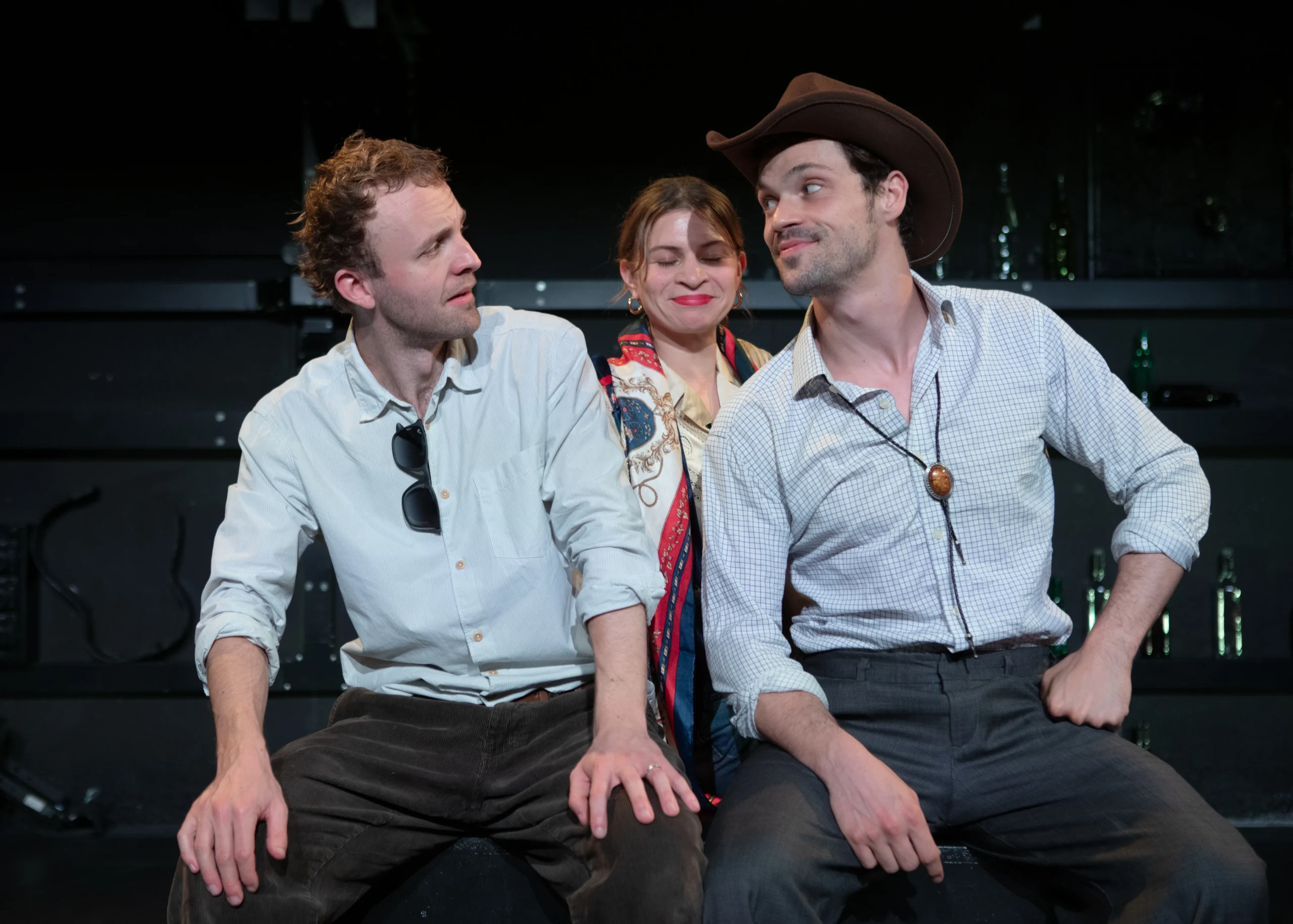
Bukowski’s classic prose, originally heavily seasoned with cynicism, unexpectedly turns in Viller’s interpretation into tender, melancholic stories about people who desperately want to be loved — and know for sure that it won’t happen. These are psychological sketches against the backdrop of a mundane, heavy, boring, joyless life. But as the voice of Bukowski himself says during the performance, “Opening a can of sardines can be an art”.
An interesting detail: the actors play unhealthy people with addictions — a special acting challenge, as all five are so dazzlingly young and beautiful that these transformations are even more fascinating — like illusionist magicians. All the actors play multiple roles, jumping from one character to another in mere seconds. Along with the costume, the voice and body language change drastically — sometimes almost grotesquely, but never slipping into parody or clowning. Take, for example, the funny father from the Wild West, played by Will Stevenson. He has everything: a hat, a tie — but he’s not a clown, not a classic redhead, not a caricature, but an exact psychological copy of a person frozen in their age, experience, and traumas. The costume here is real armor, the best protection. Remove it from the father — and you’ll find a little defenseless boy.

There’s Joe Lighthill (Will Stevens) and Edna (Francesca Wilson Waterworth) — a meeting by ad, nothing special, just a romantic hope shattered by harsh reality. He answers her call with a cracked, weak voice saying “Hello,” with a distinct comma instead of an exclamation point, but in a second realizes it’s a woman — and switches to a velvet baritone of a seducer. And Edna, in a beautiful, old-fashioned dress, looking like a former private school student, stands with her toes slightly inward, slouches, hiding in the shell of her hunched shoulders, suddenly straightens up like a spring when he talks about his miserable life — oh, the illusions of saving a lost soul!
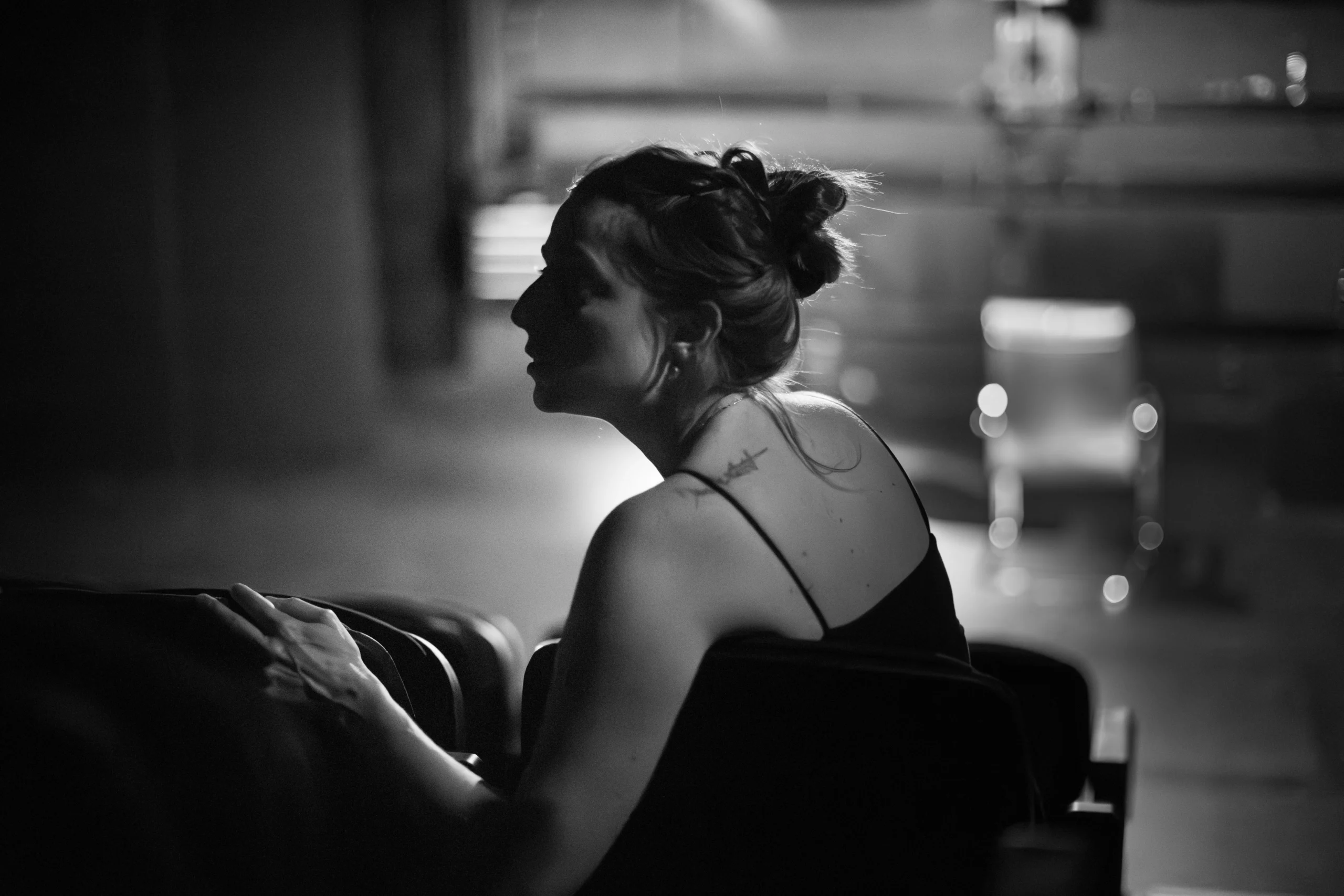
On stage, there are minimal decorations (designer – Alexandra Dashevskaya): a couple of chairs, a lamp on the ceiling, a black cube that turns into a sidewalk, a wardrobe, a car, or a pedestal for a melancholic character. The anthracite backdrop of the stage is transformed into a bar, filled with glowing bottles, between which a black-painted acoustic guitar is hidden, disassembled into parts. Here’s the headstock with lifeless tuning pegs, there’s the outline of the sides, and here’s the soundboard with the neck. Where the strings are hiding is unknown, and what strings could there be when everything is torn apart. A perfect mute symbol of these random lives.

Here’s Robert (James Viller ), in love with a mannequin, becoming almost a Pygmalion — only an infantile, sickly Pygmalion. Packed in a vest and a shirt like “mommy’s joy,” angular, constrained, he experiences an all-consuming passion of antique nature for his Galatea-Stella. The mannequin — beautiful and terrible (Victoria Valcheva), comes to life and then freezes in her nature morte — a perfectly played actor’s study. If you remember, Bukowski’s Robert is rather vile and ridiculous — but here his longing, his love, and despair are of a completely different quality. And the jealousy and anger of his ex-girlfriend Brenda, her furious scream that alarmed the neighbors, is an archaic cry of grief, not a tantrum or whim.
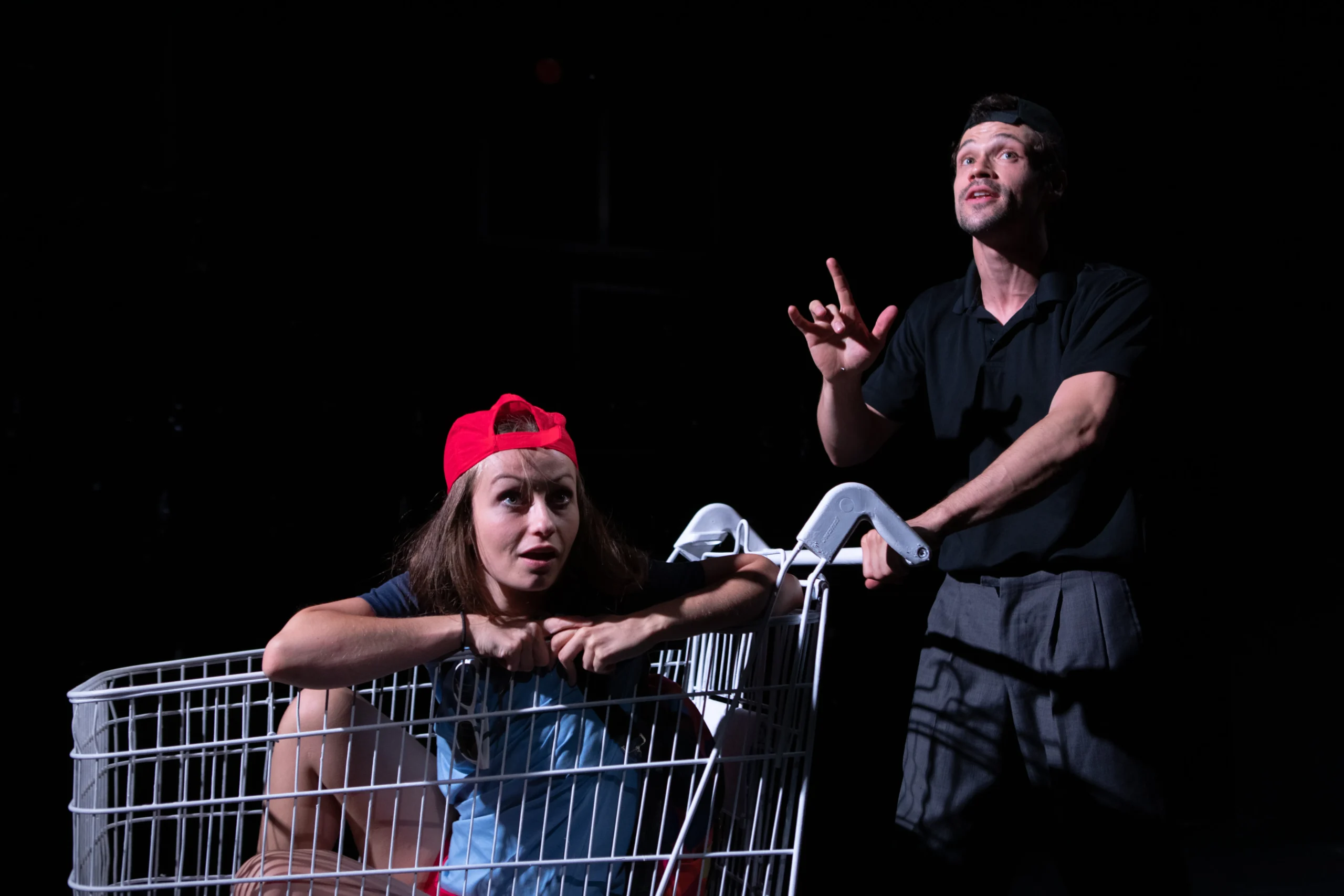
For the play’s team, Bukowski’s prose turned out to be a psychological experience, the result of which we are invited to watch. Among the six stories, there is a climactic one — a married couple where the husband is a robber, and his beautiful wife argue before the husband’s next earning trip. The incredibly captivating Meg (Victoria Valcheva) lounges on the black cube-sofa like a huge dangerous cat, calmed only by her Duke (Will Stevens), agile, sharp, bouncy like a rubber ball. Torn by love for his wife and incredible love for their little daughter. Yes, in this story, there is perhaps one of the most important characters — the four-year-old girl Lala. She is played by an adult actress, Francesca Wilson Waterworth, and it is a wonderful actor’s study of child psychology. She does not lisp or make faces, but reacts to the surroundings as a four-year-old would when her parents are fighting. She tries with all her might to shut out their fierce quarrel but eventually explodes like a tiny bomb of despair and anger, soaking everything around with her tears and screams. While her parents shout at each other, calling each other the worst names, she plays with plastic dinosaurs, illuminating them with flashlights through the grid of a shopping cart, with scary shadows of two dragons darting across the wall, trapped in toy dungeons. This tiny bright flashlight is Lola’s memory, her lightsaber, and, if you like, a tool for future reflection for this girl, who will probably also fail to grow up. And it seems that all these characters, all the sequence of stories, are illuminated from the darkness of memory by her flashlight. That’s why there’s little dirt here, and even what there is looks completely innocent, that’s why hopelessness turns into a joke, that’s why a glass of vodka is just actors’ fingers forming a ring.
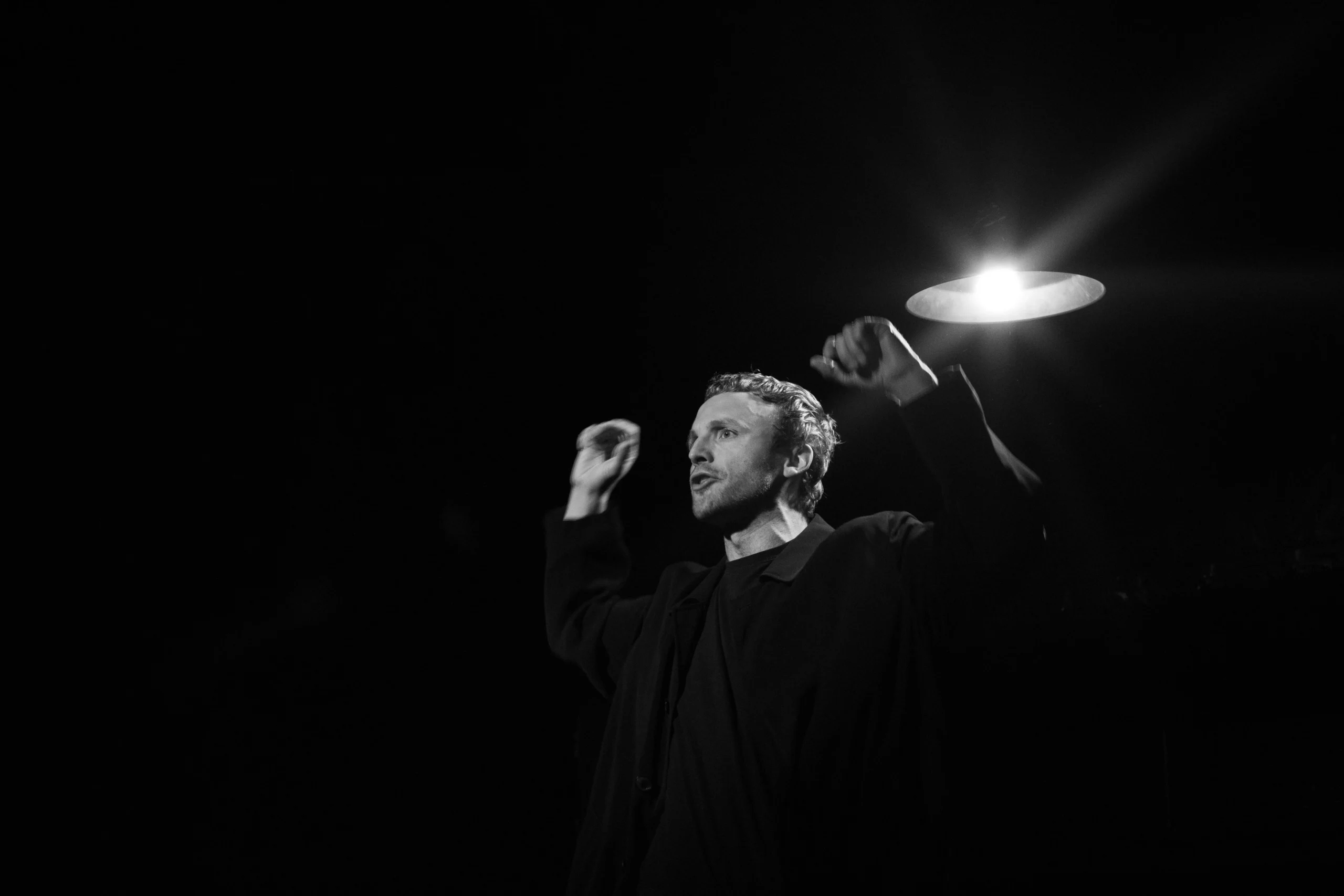
Six stories — like film fragments crumpled by the wind. Do you remember there used to be a rumor that you could wrap the earth with the tape from an audio cassette? These fragments of imaginary tape could wrap all of humanity — just as crippled, unhappy, cruel, infantile, evil, unloved, crying into the pillow at night, dreaming of obedient dolls instead of living people, hiding a .45 caliber gun in the pocket of an old jacket with trembling wet hands — never grown up, humanity, poor, poor humanity.

